Sense of period
Developing a sense of period is about going beyond knowledge of dates and period labels to help students appreciate the kind of world in which the people that they are studying actually lived. Such understanding is obviously supported by knowledge of key events, but it also depends on being able to visualise the period – recognising the kind of conditions in which people lived – and on an appreciation of the routine ideas and assumptions that shaped their thinking. The resources in this section offer a range of strategies to help teachers plan for the development of this kind of awareness, focusing particularly on the different kinds of sources that can be used to make the ideas and attitudes of people in the past accessible and meaningful in their particular context.
-

Seeing the historical world
ArticleClick to view -
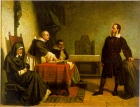
Should empathy come out of the closet?
ArticleClick to view -
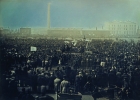
Teaching Year 8 pupils to take seriously the ideas of ordinary people from the past
ArticleClick to view -

The Holocaust in history and history in the curriculum
ArticleClick to view -
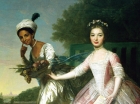
The Power of Context: using a visual source
ArticleClick to view -
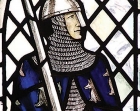
The dialogic dimensions of knowing and understanding the Norman legacy in Chester
ArticleClick to view -
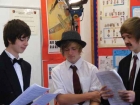
Transforming historical understanding through scripted drama
ArticleClick to view -

Triumphs Show 167: Keeping the 1960s complicated
ArticleClick to view -
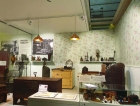
Triumphs Show 176: Using material culture as a means to generate an enquiry on the British Empire
ArticleClick to view -

Triumphs Show 193: Year 8 imagine the First World War trenches
ArticleClick to view -

Using individuals’ stories to help GCSE students to explain change and causation
ArticleClick to view -

Using narratives and big pictures to address the challenges of a 2-year KS3 curriculum
ArticleClick to view -

Using oral history to enhance a local history partnership
ArticleClick to view -

Using the concept of place to help Year 9 students to visualise the complexities of the Holocaust
ArticleClick to view -

Using the present to construct a meaningful picture of the medieval past
ArticleClick to view -

What Have Historians Been Arguing About... medieval science and medicine?
ArticleClick to view -

What can rituals reveal about power in the medieval world? Teaching Year 7 pupils to apply interdisciplinary approaches
ArticleClick to view -
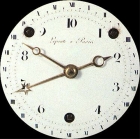
Why are you wearing a watch? Complicating narratives of economic and social progress
ArticleClick to view -
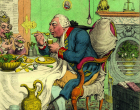
Why history teachers should not be afraid to venture into the long eighteenth century
ArticleClick to view -
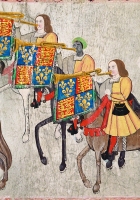
Widening the early modern world to create a more connected KS3 curriculum
ArticleClick to view

